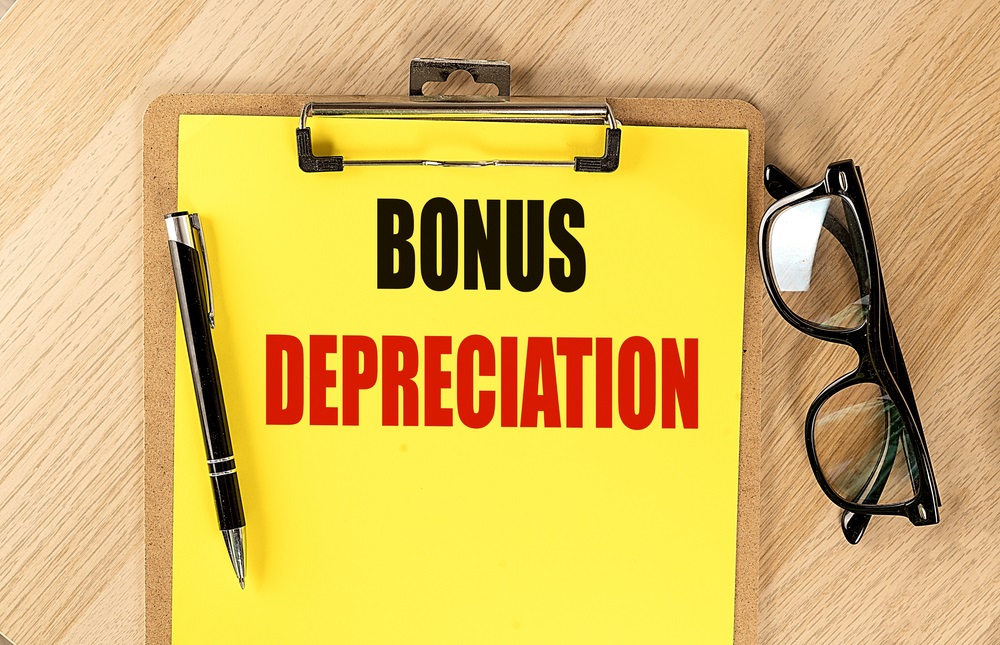Depreciation is the tax process of spreading the cost of an asset over the years it is expected to be useful. Bonus depreciation is different: It is a tax incentive that allows businesses to deduct the full cost of certain assets, such as equipment, vehicles or software, in the year of purchase. The One Big Beautiful Bill Act makes a 100% “first-year write-off” permanent for qualifying property acquired and placed in service after Jan. 19. (Property placed in service between Jan. 1 and Jan. 19 remains subject to the old 40% rate.) This permanence represents a significant shift from previous law, which would have phased out the deduction and eliminated it by 2027.
In practice, the new bonus depreciation means that if a business buys $200,000 of new equipment, it can deduct the full $200,000 in the year the equipment is placed in service. Without bonus depreciation, the business would have had to spread those deductions over the equipment’s useful life.
What property qualifies?
To be eligible under the OBBBA, the property must be both acquired and placed in service after Jan. 19, and it must fit into specific categories, including:
- Vehicles, manufacturing equipment and heavy machinery
- Computer software
- Furniture, fixtures and office equipment
- Interior finishes, such as flooring
- Certain exterior improvements, such as landscaping and paving
The OBBBA also provides special treatment for manufacturing. First, new manufacturing facilities qualify for 100% bonus depreciation, which includes the entire cost of constructing the building itself, not just the equipment inside. Second, nonresidential real property used in manufacturing, placed in service between July 4 and the end of 2030, may be considered “qualified production property” and thus eligible for a full deduction. To qualify as QPP, construction must begin after Jan. 19 and before Jan. 1, 2029, and the property must be placed in service before Jan. 1, 2031.
Used property can also qualify for bonus depreciation, but there are restrictions. For example, the property cannot be purchased from a related party (that is, family members or businesses that you or your family control). Additionally, the buyer’s tax basis must reflect the actual purchase price; they cannot simply “carry over” the seller’s adjusted basis (the seller’s original cost minus any depreciation already claimed).
Certain items, such as roofs and heating, ventilation and air-conditioning systems, do not qualify for bonus depreciation. However, businesses may still be able to deduct these costs under a rule known as Section 179 expensing, which allows businesses to immediately deduct the full cost of certain assets up to a specified dollar limit rather than depreciating them over time. For 2025, the OBBBA increased the Section 179 limit to $2.5 million, with a phaseout beginning at $4 million. This means businesses can expense up to $2.5 million of qualifying purchases in 2025. However, once total purchases exceed $4 million, the deduction is reduced dollar for dollar and eventually eliminated.
Planning opportunities
Businesses are likely to capitalize on the permanence of this deduction to plan significant purchases. Some companies may also consider a cost segregation study, which analyzes the costs of a building by breaking it down into individual components — such as lighting, flooring or landscaping — rather than treating the entire building as one long-term asset. Because many of these components have shorter useful lives for tax purposes, they may qualify for bonus depreciation. The result is a larger deduction in the year the building is placed in service.
Some states require businesses to “add back” the federal bonus depreciation deduction. This means companies first take the deduction on their federal return but then include that amount as income again when filing state taxes. As a result, the deduction lowers federal taxes but not state taxes.
It is important to remember that the deduction applies in the year the property is placed in service, not when it is acquired.
Why it matters
The OBBBA’s permanent bonus depreciation provision aims to free up cash for business owners, providing them with capital to reinvest immediately instead of waiting years for gradual deductions. This can lead to increased flexibility, growth and certainty in long-term planning.
However, this is a complicated area of tax law. This overview does not cover every detail or a particular company’s specific situation. Be sure to consult a qualified tax professional before deciding how to leverage the OBBBA’s provisions.
Learn more about our tax practice, our audit services, our business advisory service or our strategic, smart and wonderfully human team of experts here.
Need something else? We’d love to hear from you, so contact our accounting firm.
Want to be among the first to know MCB’s latest insights? Subscribe to our blog and our newsletter.
@2025
Related Articles
Tax Provisions for Individuals in the One Big Beautiful Bill Act

